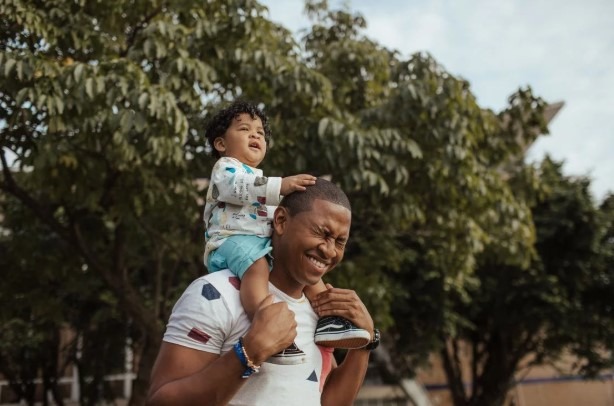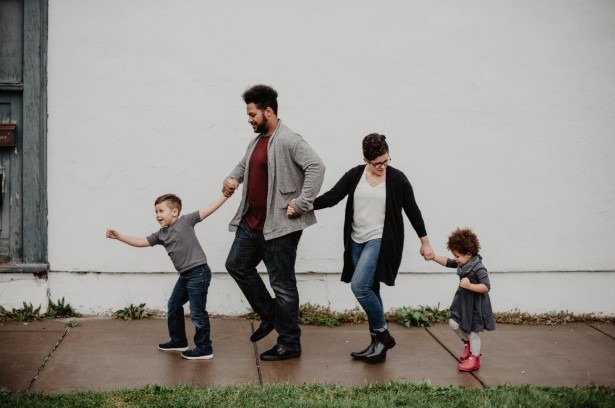It seems every generation has something to say about “kids these days.” With this comes a lack of awareness that one generation shapes the next, and the methods by which you parent your children impacts their parenting choices. Combine that with an ever-evolving world, and it can be hard to bridge the gap.
Needless to say, parenting has changed dramatically over the past fifty years. Here are some of the overarching generational shifts in parenting practices from the last half-century.

Less Freedom to Roam
Over time, children have gone from having the freedom to roam to being closely monitored at all times. In the 1970s, it wasn’t uncommon for kids to take off to the woods for the day or walk for miles to and from school. Now, the term “helicopter parent” has become a commonly used phrase when noting how closely we monitor our kids.
However, this shift in parenting dynamics isn’t without cause. The global population has effectively doubled over the last fifty years. People no longer have the same rapport with their neighbors that they once did. Additionally, digital news channels and catchy headlines make bad news more accessible. A parent in the digital era is more aware of the kidnappings and child crimes around the world, and those tales have an impact.
Photos Were Novel and Precious
Looking back, it’s hard to imagine an era where you didn’t have thousands of candid photos of your child. With smartphones becoming common household commodities, how we view photography has changed dramatically over the past twenty years.
As digital photography has overtaken the world, printed photos have become less common. People no longer have albums full of images to document special events. Taking family videos is no longer a novelty; it’s a daily occurrence.
On the bright side, there’s no more worry about losing or wearing out a videotape. Services like EverPresent can convert videotapes to a digital format to keep those cherished memories safe forever.
Fewer Nuclear Families
Nuclear families are the traditional depiction of what a family looks like: a mom, a dad, and conjugal children. Fifty years ago, the nuclear family was the norm and the image of an “ideal” family situation. Now, nuclear families are a rarity, with more blended families taking center stage.
This shift in parenting is primarily due to increased divorce rates over the decades. What was once viewed as taboo is now entirely accepted. Blended families show that love can transcend bloodlines. Healthy co-parenting relationships can be a positive influence and create a supportive village in which to raise a child.

More Engaged Fathers and Working Mothers
Members of older generations will often comment on how distant their father seemed, and how omnipresent their mom was. This didn’t stem from having a lousy parent, but just fit the expected roles of the time. Fathers often worked to support the family and acted as the disciplinarian rather than being more engaged in the child-rearing process.
Now, having a stay-at-home dad isn’t uncommon. More fathers are taking parental leave when a child is born and spend dedicated time interacting with their children.
On the other side of the equation, there are more working mothers than there were fifty years ago. There’s been a shift toward shared responsibility and equality in the home.
A Shift in Parents’ Ages
People are now waiting to have children until they’re older. While the average age for first-time moms in the 1970s was around 24, it’s now floating around 30. The same shift applies for first-time dads.
This change in parenting goes hand-in-hand with the changing economy. More couples are waiting to establish their education and careers before having a child. Having more women in the workforce also has an impact.
Parenting needs to change over time because the world changes over time. What worked in the 1970s might not work now. That being said, today’s parents should look to previous generations for inspiration, and dictate their own path forward while child-rearing.
I’m a 20-something stay-at-home mother and wife. I have an amazing husband, a beautiful daughter, two loving dogs, and a lazy cat. I wouldn’t change my life for anything! I love to read, listen to music, cook and blog!

You describe the good points. Lovely
Great article! Great list of things! One I�ve learned after caring for four children is to be prepared for emergencies! I have four boys who are all active and we had a few broken bones and chipped teeth growing up so I learned quickly to have my kid�s pediatric dentist on speed dial!�